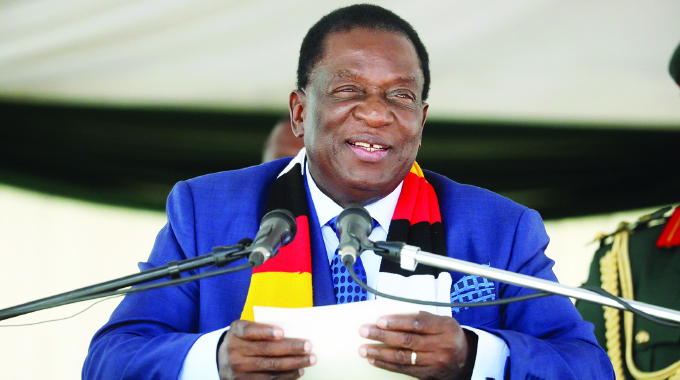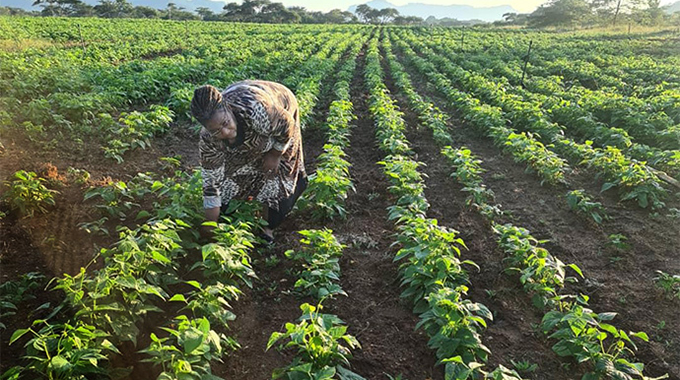EDITORIAL COMMENT : Second Republic brings justice to communities

The spread of the systems of courts and their services into smaller towns and the suburbs of large cities brings practical justice into ever more communities and thus strengthens the whole judicial system.
It is fairly common to hear people talking of “instant justice”, when there is zero justice involved, and even the more accurate expressions of lynch law, which has zero to do with any law, and mob rule highlight the sort of frustration that many feel.
Quite often criminals are caught red-handed by members of the public. There is a modest range of crimes where citizen arrests are possible, centred around immediate threats to the person and property.
So citizen arrests are possible when a suspect is caught red-handed in murder, robbery and assault, and in theft, which would include muggings since these are thefts with assault.
It is the immediate danger to life and limb and property that is the criterion. You cannot, for example, effect a valid citizen’s arrest for corruption or fraud, since these require more investigation and have to be left to the police, although citizens can and should pass on information and make complaints.
Everyone in Zimbabwe has rights, and even criminals have the right to appear before a court, be given a fair trial, and if found guilty receive the appropriate sentence.
Lynch mobs and the like cannot administer justice, just violence. But when a community catching a criminal can hand them over to the police and see that person in court the following day, they can also appreciate that justice can work.
The other advantages for having local courts dealing with crime is that victims and witnesses can easily attend court sessions, and the deterrent effect of sentences for the guilty can easily spread around a community.
If you know that the drug dealer round the corner, or the person everyone thinks indulges in gender-based-violence, is tried within the community, the word spreads.
Even if the local court does not have a sitting regional magistrate, needed for the trial of the minority of more serious crimes such as robbery and rape, we do not see why the remands cannot be in the local court with the trial then set before the nearest regional magistrate.
That would still keep the community involved.
When commissioning Epworth Magistrates Court this week, and the national census found Epworth was Zimbabwe’s fifth most populous urban centre and so needs its own courts, President Mnangagwa was concerned over rising crime rates, and the need for more community involvement to back the police and courts and in the battle against crime.
While mob rule has to be stopped, community involvement is easier when the police and courts are both within the community so the whole system can be seen by everyone in action and working.
Magistrates courts do not only deal with criminal cases. They also handle the vast array of small civil cases, largely things like child-support orders and protection orders, and even small debt claims.
These should also be handled within the community of those who have to raise the children, who need protection, and who owe or are owed money.
Practical justice is accessible justice, and while all Zimbabwe’s courts are open to all, access can be limited by transport costs and transport times, queues and the like. So the spread of magistrates courts does create this accessibility.
The spread of the magistrate courts network should also help in the other area where the President was concerned, the growing use of illegal drugs, and that obviously has been backed by the growing number of dealers and sellers.
The police have been active in arresting those suspected of selling illegal drugs, often using information obtained when they bring in users for questioning, but for most people the dealer is just a cypher, a person picked up who then disappears into the justice system.
But when people can see their local dealers appearing in their local court in front of their local magistrate the matter can become more personal and community orientated, and this has a far greater effect on the whole community.
The very nature of the drugs business, as with all retail businesses whether legal or criminal, is that a seller cannot make money if customers do not know there is something for sale and know where to go to buy.
So every community collectively knows who is selling drugs, what drugs they are selling and where they selling.
This means we are back to that point the President made about community involvement in fighting crime and the need for people to come forward and tell the police what they know and be prepared to appear in court as witnesses.
If we shrug our shoulders when we see a drug dealer operating, or simply refuse an offer to sell, and then cross over to the other side of the road, we are in many ways condoning drug trafficking.
Attacking a social evil from drug trafficking to GBV requires good people to take action, to pass on what they know and be prepared to stand up and be counted. If they do nothing the criminals win.
The Second Republic has, among all its other reforms and progress, made access to services and practical enforcement of rights one of the centrepieces of its programmes.
So children with their right to proper education are seeing schools within walking distance, built by communities, local authorities and central Government working together.
So access to health is becoming practical for everyone with clinics filling the gaps. Even e-passport processing can now be done at a growing range of district centres, so people can do this near their home instead of going to a big city.
Among all this is the spread of practical justice, with the Judicial Service Commission, with backing from central Government in the form of policy and budget, ensuring that more and more people can obtain justice closer to where they live, and that magistrates and even High Court judges can become part of the ordinary community work.











Comments